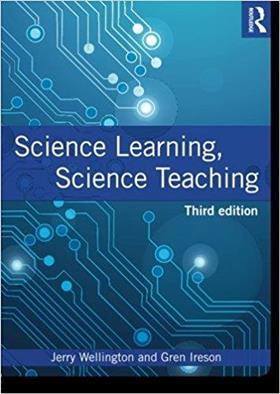A guide for teachers to reflect on and improve their practice
Jerry Wellington and Gren Ireson
Routledge 2012
307pp | £23.99 (PB) | ISBN 9780415619721
Science learning, science teaching aims to help both new and more experienced teachers, and other educational professionals, to reflect on and improve their practice in the teaching of secondary school science. It serves as an excellent introduction to all the major contemporary issues in science education and covers a lot of material succinctly in its 300 pages.
Each chapter deals with a different issue and these can be read independently of each other. It does, however, start with an excellent section on the essential features of what makes a good science teacher and the competing issues around what a balanced science education should contain.
A particularly interesting chapter surveys all the various theories about learning in science and also looks at what the authors describe as current educational ‘fads’. The author is refreshingly sceptical about some of the ideas that I have seen come and go over the past twenty years, yet still effectively puts forward the book’s main message: understanding the processes of how students learn science is essential to the effective teaching of it. Practical work, investigations, language and How Science Works are all covered well in their own chapters, although I found Using ICT disappointingly dated.
Although the book is full of ideas, theories and guidance, it is easy to read and remarkably free from jargon. It does feel like it is written by people who understand what real classrooms are like. It contains a lot of excellent advice for new teachers, while providing plenty of food for thought for the more experienced. It does not try to lay out a magic pathway to being an excellent teacher, but it does a good job of introducing the many strands and ideas that an excellent teacher needs to be aware of.
Purchase Science Learning, Science Teaching from Amazon.co.uk







No comments yet